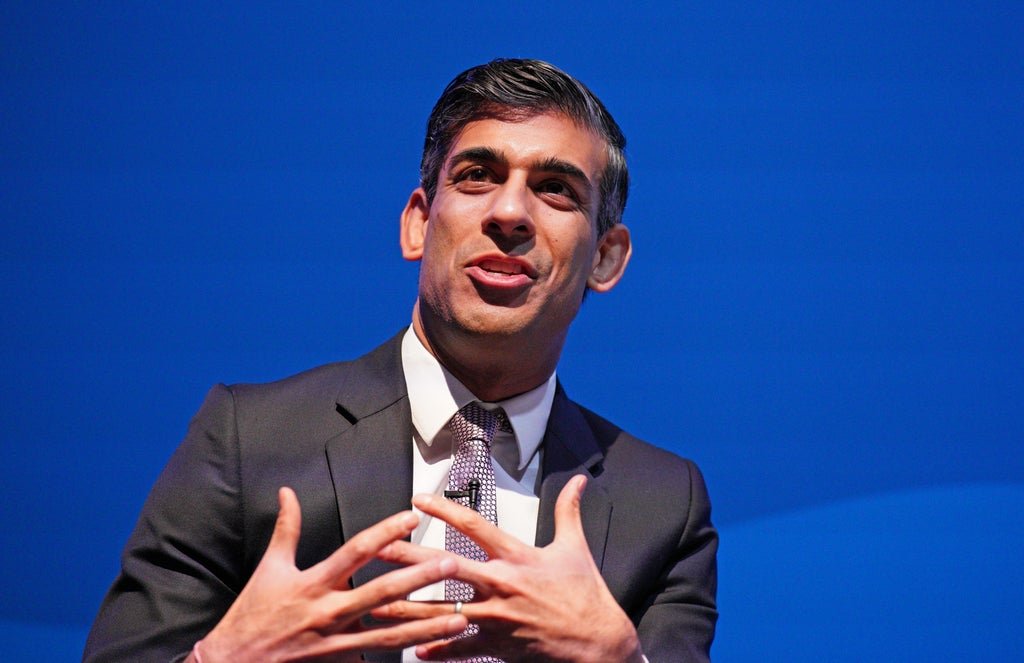
Rishi Sunak appears set to ignore increasingly desperate pleas for help from UK businesses facing huge cost increases when he delivers his latest spending announcement on Wednesday, industry executives fear.
Businesses are being hit by massive hikes in gas and electricity bills, well above those imposed on households, which are protected by the price cap.
Yet leaders across the UK business spectrum say they’ve had little indication from Treasury officials that their concerns are being heard.
Hospitality, fertilizer and steel leaders are among those who fear their calls for action will be ignored when the chancellor announces his tax and spending plans in the spring statement.
Transport industry leaders welcomed reports the Chancellor was considering a 5p cut in fuel duty, but said it would only cover a small fraction of the record rise in prices at the pump .
The Treasury has indicated that any new tax and spending changes will be focused on supporting household budgets, not businesses. But business groups warn the approach could prove short-term, as failure to help businesses will ultimately lead to unsustainable price increases that will be passed on to consumers.
Kate Nicholls, chief executive of UKHospitality, said pubs, bars and restaurants are set to hike prices by an average of 10% due to a “perfect storm” of inflationary pressures. About half of this pressure results from the removal of pandemic support, including a reduction in VAT.
“We have a cost of living crisis, but we also have a cost of doing business crisis,” she said, adding that she was “not optimistic” the Chancellor would announce any policy changes. major this week.
Hospitality businesses, hard hit by the pandemic, are now seeing their costs rise by 13-15%, with prices for food, wages and transport all rising rapidly. The war in Ukraine threatens to cause further upward pressure on prices this year.
The National Insurance hike proposed by Rishi Sunak will add pressure on businesses and consumers.
“It means we have no choice but to raise prices at the worst possible time, just when people are facing a squeeze in the cost of living. We fear this will suppress demand and reverse the recovery,” Ms Nicholls added.
Several sources who met with the Treasury in recent days said they understood Mr Sunak would not budge on the NIC increase. This will see NIC payments jump by more than 10% in cash for many people, further eating away at inflation-eroded incomes.
The industry is now pinning its hopes on the Chancellor increasing the threshold at which people start paying NI, which would partially offset the rate increase.
Ms Nicholls said she would welcome the change, but pointed to a range of measures that would be more effective, such as lowering the rate of VAT and overhauling business rates.
Energy-intensive industries have been hardest hit by soaring gas and electricity prices, but they too expect little help from the government.
“Expectations are not high at this stage,” said UK Steel policy manager Frank Aaskov.
“It’s hard to have hope, given the different things we’ve been through over the last few years.”
Mr Aaskov said ministers had not chosen to use their vaunted ‘Brexit freedoms’ – such as not being bound by rules limiting state aid – to support the country’s steel industry.
Steel mills have often been idle in recent months as energy has increased so much that production is no longer viable.
Fertilizer supplies have been strained by high gas prices and Russia’s invasion of Ukraine, but the industry expects no intervention.
Jo Gilbertson, head of fertilizers at the Confederation of Agricultural Industries, warned that Britain’s food supply could be further threatened as a result.
British Ceramic Confederation chief executive Dr Laura Cohen said the Chancellor had threatened the future of energy-intensive industries by delaying action on high prices. “The government is talking about producing an energy supply strategy, but we need to act now,” she said.
Logistics companies are among the biggest beneficiaries of an unconfirmed plan to cut fuel taxes by 5p. Kate Gibbs, policy officer at the Road Haulage Association, said the measure was welcome, but warned businesses were still facing steep cost increases which would ultimately hurt consumers.
“It’s going to be a real real struggle with pump prices at the highest I can remember,” Ms Gibbs said.
Fuel accounts for one-third of haulage company costs and the average 44-ton truck achieves around 8 miles per gallon, meaning any increase in diesel and gasoline has a significant impact on the bottom line.
Ms Gibbs added: ‘It really is a huge expense and the higher the price goes, the more the price has to be passed on. You and I are the ones who end up paying for both products in supermarkets. »
More about this article: Read More
Source: www.independent.co.uk
This notice was published: 2022-03-21 19:16:21
